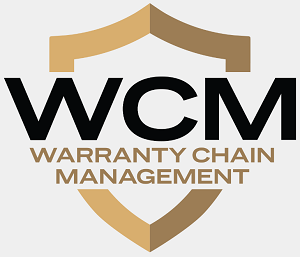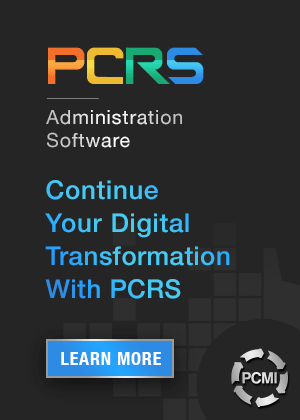Service Contracts and the Magnuson-Moss Warranty Act:
This article, by two expert attorneys, is intended to help readers navigate the subtle boundaries between the Magnuson-Moss Warranty Act and the service contract laws of the U.S. states, and to help explain the key differences between product warranties, service contracts, and insurance.
Editor's Note: This column, by Locke Lord attorneys Brian Casey
and Jon Gillum, is the latest in an ongoing series of contributed
editorial columns. Readers interested in authoring a contributed
column in the future can click here to see the Guidelines for
Editorial Submissions page.
By Brian T. Casey and Jon L. Gillum
Service contracts -- or extended warranties, as they are often known in business parlance -- are unique types of risk transfer contracts both in terms of the way they function and the ways they are regulated.
Although service contracts mirror many of the features of traditional insurance products, most states expressly exclude them from the statutory definition of insurance, and the majority of states go one step further by establishing formal licensing and financial security requirements that govern the sale of service contracts to consumers by service contract provider or obligors. While these state-based laws and rules are the primary source of regulation for service contracts, such contracts are also potentially subject to the federal Magnuson-Moss Warranty Act (the MMWA).1
Yet, the MMWA also governs "regular" or "included" warranties that cover products sold to consumers and are included without payment of additional consideration. The lion's share of the MMWA's requirements do not expressly apply to service contracts but rather only to "written warranties" for consumer products.
Furthermore, the provisions of the MMWA that do extend to service contract raise questions as to the existence of the MMWA's pre-emption of state law and possible reverse-pre-emption of the MMWA under the McCarran-Ferguson Act (which preserves state authority to regulate the business of insurance).
Given this regulatory complexity, the application of the MMWA to service contracts can be both nuanced and confusing. This article is intended to help navigate the subtle boundaries between the MMWA and state service contract laws and understand the difference between service contracts and insurance products.
I. Overview of the MMWA
The MMWA requires suppliers of consumer products (which include manufacturers and sellers) to provide consumers with detailed information about the warranty coverage of those consumer products and regulates the rights of consumers and the obligations of warrantors under written warranties. While the MMWA does not require a manufacturer or seller to provide a written warranty to consumers, once a manufacturer or seller opts to offer a written warranty on a consumer product, that warranty must comply with the MMWA and the applicable regulations of the Federal Trade Commission (the FTC), which enforces the MMWA.1
In passing the MMWA, Congress intended to:
- ensure consumers have access to complete terms and conditions of a warranty;
- provide consumers with information about warranty coverage of a consumer product before its purchase to enable the consumer to make an informed purchase decision;
- promote competition in the sale of products based on warranty coverages;
- strengthen incentives for warrantors to perform their warranty obligations in a timely and thorough manner and to resolve any warranty disputes with minimum delay and expense to consumers, and
- establish remedies consumers can pursue for a breach of warranty.2
Congress also directed the FTC to adopt rules and regulations applicable to warrantors and warranties of consumer products, and the FTC has responded with a number of rules interpreting the MMWA on such issues as prohibited tying practices,3 definitions under the MMWA, and pre-sale availability of written warranty terms.4
In addition to fines and penalties which the FTC can assess against a warrantor for violation of the Act, a consumer can bring a private right of action against a warrantor for its violation of the Act, which allows for recovery of court costs and reasonable attorneys' fees by the consumer from the warrantor. Although most consumer litigation for violations of the Act is brought in state court due to challenges inherent to the existence of federal jurisdiction, class action litigation under the Act may be brought in federal court.5
II. Overview of State Service Contract Laws
Many, but not all, states have codified some form of service contract law. Among those states that have enacted service contract legislation, a handful of states simply define a service contract but importantly provide that service contracts are not regulated as insurance.6
However, the majority of states that have enacted service contract laws establish licensing/registration and financial security requirements for service contract obligors and specify certain required contract terms and business practices.7
To accomplish this, some states have adopted the Service Contracts Model Act promulgated almost 20 years ago by the National Association of Insurance Commissioners, or some variation thereof.8 This model act applies broadly to any type of tangible9 personal property purchased by a consumer and defines a service contact as:
A contract or agreement for a separately stated consideration or for a specific duration to perform the repair, replacement or maintenance of property or indemnification for repair, replacement or maintenance, for the operational or structural failure due to a defect in materials, workmanship or normal wear and tear, with or without additional provision for incidental payment of indemnity under limited circumstances, including, but not limited to, towing, rental and emergency road service, but does not include mechanical breakdown insurance or maintenance agreements.8
However, other states have approached service contract regulation based on the specific type of underlying product involved, primarily built around three categories of consumer products. As a result, some state service contract laws apply only to (i) motor vehicles, (ii) consumer electronics or (iii) residential home appliances, HVAC systems, and structural components.10 At its core, a service contract's coverage is for inherent defects arising from the original manufacturing of the underlying product.11
Most state service contract acts exclude from their scope (a) warranties, (b) maintenance agreements and (c) commercial service contracts.12 In some states, warranties, maintenance agreements and service contracts offered by regulated public utilities covering their transmission devices are also excluded. For this purpose,
- "Warranty" typically means a guarantee made solely by a manufacturer, importer or seller of property or services without separate charge, and that is incidental to the sale of a product covering defective parts, mechanical or electrical breakdown, labor, or other remedial measures, such as repair or replacement of the property or repetition of services.
- "Maintenance agreement" typically means a contract of limited duration that provides for only scheduled maintenance of a product.
Regardless of the approach, most state service contract laws typically provide exceptions for warranties included in the original price of the product as well as service contracts offered by manufacturers or others in the supply chain (either as an exemption from licensing/registration altogether or an exemption from financial security requirements imposed on an obligor).13
In addition, most state service contract laws allow a service contract obligor to pay "incidental indemnity" in some circumstances and cover damage for "accidental handling" in addition to promising to repair or replace a defective underlying product.14
Finally, in recent years, many states have added certain specialized types of ancillary risk transfer products to their definitions of service contracts, especially for motor vehicles, such as key fob replacement, road hazard services, and paintless dent repair. For example, Texas not only includes the aforementioned types of ancillary products within its definition of a non-residential "service contract," but it also includes certain types of identity theft-recovery services and a new depreciation benefit for motor vehicles.14
Indeed, the growing number of these types of ancillary products -- many of which do far more than simply repair or replace an underlying defective product -- highlights one of the defining features of a regulated service contract: state lawmakers have chosen to treat such contracts as non-insurance products. After all, state service contract laws are primarily designed to regulate "third party" risk-transfer contracts, meaning service contracts that are not issued by a business that is the manufacturer or distributor (in the supply chain) of the subject, underlying product.
Without the exception that service contract laws provide to a state's insurance laws, third-party obligor service contracts would in most cases be considered insurance. This is because such contracts typically satisfy all the elements of the common definition of insurance:
- risk transfer from the covered product purchaser to the contract issuer,
- payment of separate consideration by the contract purchaser to the contract issuer where there is risk distribution among purchasers of the issuer's contracts, charging a price for each contract in an amount that assumes actuarial distribution of expected future claims to be made under all the issued contracts,
- indemnity promise by the contract issuer to the contract purchaser, and
- loss triggered by the occurrence of an adverse fortuitous event beyond the substantial control of the contract issuer.15
This last item is the critical one that makes a third party obligor service contract presumptively an insurance contract (in the absence of a service contract statutory exception), because the third party issuer is not a member of the covered product's supply chain or distribution channel and has no control, or relationship whatsoever, to the quality of the covered product's manufacture and performance.
Therefore, in essence, what state service contract laws do is substantially deregulate a risk-transfer contract that would otherwise be an insurance contract and expressly deem a service contract not to be insurance.16
As discussed in Part III below, this regulatory approach creates more confusion regarding which federal laws apply to service contracts in light of the McCarran-Ferguson Act, which is the foundation of America's state-based system of insurance regulation. It also can result in reverse-pre-emption of federal law for insurance products.17
III. The Difference Between Service Contracts Under the MMWA and State Law
Understanding the way the MMWA approaches extended warranties in contrast to state service contract laws first requires examination of two of the MMWA's key defined terms: "written warranty" and "service contract". Under the MMWA, a "written warranty" means:
- any written affirmation of fact or promise made in connection with the sale of a consumer product by a supplier to a buyer which relates to the nature of the material or workmanship and affirms or promises that such material or workmanship is free of defects or will meet a specified level of performance over a specified period of time, or
- any written undertaking in connection with the sale by a supplier of a consumer product to refund, repair, replace, or take other remedial action with respect to such product if such product fails to meet the specifications set forth in the undertaking, which written affirmation, promise, or undertaking becomes part of the basis of the bargain between the supplier and the buyer.18
In other words, a MMWA "written warranty" generally replicates what is often referred to in business parlance as a "limited" or included warranty. In contrast, the MMWA defines a "service contract" quite succinctly as: "a contract in writing to perform, over a fixed period of time or for a specified duration, services relating to the maintenance or repair (or both) of a consumer product."19
At first glance the differences between a "written warranty" and a "service contract" under the MMWA are not instantly apparent, especially because the broad definition of a written warranty arguably subsumes the same types of promises covered by a service contract and both prongs of the definition of a "written warranty" are joined by an "or". To add to the confusion, both definitions expressly refer to promises to "repair".
However, the FTC's regulations aid in understanding the distinction between these two terms by honing in on the key distinguishing phrase -- the "basis of the bargain" -- which is contained in the definition of "written warranty" but missing from the definition of a "service contract":
A service contract under the Act must meet the definitions [sic] of section 101(8) [definition of a service contract], 15 U.S.C. 2301(8). An agreement which would meet the definition of written warranty in section 101(6)(A) or (B), 15 U.S.C. 2301(6)(A) or (B), but for its failure to satisfy the basis of the bargain test is a service contract. For example, an agreement which calls for some consideration in addition to the purchase price of the consumer product, or which is entered into at some date after the purchase of the consumer product to which it applies, is a service contract.20
In short, a "written warranty" under the MMWA, must be included as part of the initial consumer product purchase transaction and its cost embedded within the single purchase price paid by the consumer -- the original "basis of the bargain".
However, a "service contract" under the MMWA, in contrast, requires some type of additional consideration or transaction that is separate and apart from the basis of the initial bargain with the consumer. And, in that sense, the definition of a MMWA "service contract" begins to look very similar to the definition of "service contract" under most state service contract laws which, as noted above, typically requires a promise to repair or replace a product in exchange for separately stated consideration.
It is at that point, however, that the similarities between the MMWA's definition of "service contract" and the state service contract law's definition of a "service contract" end and the differences begin. For example, the FTC's MMWA regulations go on to note the following:
An agreement which relates only to the performance of maintenance and/or inspection services and which is not an undertaking, promise, or affirmation with respect to a specified level of performance, or that the product is free of defects in materials or workmanship, is a service contract. An agreement to perform periodic cleaning and inspection of a product over a specified period of time, even when offered at the time of sale and without charge to the consumer, is an example of such a service contract.21
In other words, the FTC sweeps maintenance agreements into the MMWA's definition of a "service contract," even though most state service contract laws typically do not apply to mere maintenance agreements.
Similarly, the definition of a "service contract" under the MMWA does not include any exceptions for extended warranties offered by manufacturers -- products that are often excepted from licensing and/or financial security requirements under state service contract law.22
Moreover, the MMWA does not expressly cover such services as key fob replacement, road hazard protection, incidental indemnity, or identity theft -- products that arguably do more than repair defects in or maintain a consumer product and which many states have chosen expressly to include in their statutory definitions of a "service contract".23
In summary, while there is some overlap between the definitions of a service contract under the MMWA and state service contract laws, certain types of products may not fall within both definitions. Instead, some extended warranties (i) may be a "service contract" under both state service contract laws and the MMWA, (ii) may be a "service contract" under the MMWA but not under state service contract laws, or (iii) may be a "service contract" under state service contract laws but not under the MMWA.
IV. Pre-emption Considerations Under the MMWA
Parsing legal definitions is only half of the battle in determining the boundaries between service contracts under the MMWA and state service contract laws. Once a determination is made about the applicability of these definitions, the next step is to consider whether pre-emption principles come into play.
Unfortunately, both traditional federal pre-emption (due to the fact the MMWA is a federal law that potentially conflicts with underlying state service contract laws) and less common reverse-pre-emption (due to the fact that the McCarran-Ferguson Act makes state insurance laws the supreme law of the land in certain situations) are potentially relevant.24
Indeed, the FTC's rules state the following:
The Act recognizes two types of agreements which may provide similar coverage of consumer products, the written warranty, and the service contract. In addition, other agreements may meet the statutory definitions of either "written warranty" or "service contract," but are sold and regulated under state law as contracts of insurance. One example is the automobile breakdown insurance policies sold in many jurisdictions and regulated by the state as a form of casualty insurance.
The McCarran-Ferguson Act, 15 U.S.C. 1011 et seq., provides that most federal laws (including the Magnuson-Moss Warranty Act) shall not be construed to invalidate, impair, or supersede any law enacted by any State for the purpose of regulating the business of insurance. While three specific laws are subject to a separate proviso, the Magnuson-Moss Warranty Act is not one of them. Thus, to the extent the Magnuson-Moss Warranty Act's service contract provisions apply to the business of insurance, they are effective so long as they do not invalidate, impair, or supersede a State law enacted for the purpose of regulating the business of insurance.25
Moreover, there are two major considerations that make any pre-emption analysis -- whether traditional or reverse -- very nuanced and fact-specific in this area.
First, even though the MMWA applies to service contracts (as defined by the MMWA), the MMWA contains only a few provisions that are expressly applicable to service contracts (as opposed to MMWA written warranties). For example, the FTC has taken the position that the MMWA requires a service contract's terms and conditions to be "fully, clearly, and conspicuously disclosed."26 And, the MMWA states that the terms and conditions of a service contract must be in "simple and readily understood language" in the event that a supplier enters into a service contract in addition to, or in lieu of, a written warranty.27
The MMWA also restricts a supplier's ability to disclaim an implied warranty covering the underlying product if the supplier enters into a service contract with the consumer within 90 days of the date of the sale of the underlying product.28
However, the vast majority of the provisions of the MMWA apply only to written warranties but not to service contracts. Although the MMWA grants the FTC the authority to promulgate rules to prescribe "the manner and form" for disclosing a service contract's terms and conditions, the FTC has chosen not to promulgated any such rules to date.29 Thus, there are only limited situations where a provision of the MMWA could potentially conflict with a state service contract law for purposes of any pre-emption analysis.
Second, even where a conflict exists between the MMWA and a state's service contract law, it is necessary to determine if the underlying state law is regulating the business of insurance, and thereby invoking the application of the McCarran-Ferguson Act.
However, as noted above, that analysis may depend on exactly how the state in question has chosen to regulate service contracts.30 For example, states that have chosen to regulate service contracts outside of their insurance codes through state governmental agencies other than their departments of insurance and that expressly state that service contracts are not insurance would be unlikely candidates for reverse pre-emption under the McCarran-Ferguson Act.
Nevertheless, states that regulate service contracts in their insurance codes, through their insurance departments, and merely stipulate that service contracts are exempt from certain, but not all, portions of the state's insurance code, could make a stronger case for reverse pre-emption.31
V. Conclusion
Although it is tempting to focus only on state laws when evaluating how a service contract is regulated, the MMWA provides an important reminder that federal law may be equally as significant. Service contract obligors, administrators, and contractual liability insurance policy insurers of any type of extended warranty will want to consult with insurance regulatory counsel to ensure that they have correctly determine how their product is categorized under both the MMWA and state service contract laws, as well as potentially state insurance laws and the McCarran-Ferguson Act.
Footnotes:
1. See 15 United States Code §§ 2301-2312 [go back]
2. See, e.g., 15 U.S.C. §§ 2301-2312; 16 Code of Federal Regulations § 700.1-1-703.8. The FTC has also issued rules to address the amendments to the MMWA resulting from the E-Warranty Act. See FTC Issues Final Rule Amendments Related to the E-Warranty Act. [go back]
3. See, e.g., Lauren Fincher & Jon L. Gillum "Use It or Lose It?: FTC Warns Companies Against Conditioning Warranty Coverage on Use of Specified Parts or Services," InsureReinsure (Apr. 19, 2018). [go back]
4. See, 16 CFR § 700.1-1-703.8. [go back]
5. See 15 U.S.C. §§ 2310(d) [go back]
6. See, e.g., Idaho Code § 41-114A(2). [go back]
7. See, e.g., Tex. Occ. Code chs. 1303 & 1304. Financial security requirements typically require an obligor to either post a bond, hold a reserve, demonstrate a level of net assets, or purchase a contractual liability insurance policy known in business parlance as a "CLIP". See, e.g., Tex. Occ. Code § 1303.151-54. [go back]
8. See NAIC Service Contracts Model Act (available at https://www.naic.org/store/free/MDL-685.pdf). [go back]
9. State-regulated service contracts laws typically do not expressly permit coverage for the rendering of only services and, in some cases, for intangible products such as computer software. However, as noted here, many states have added ancillary products to their definitions of "service contract" -- a trend that has extended the boundaries of the types of permissible products covered by service contracts and excluded from regulation as insurance. [go back]
10. For an in-depth discussion of the way that Texas separates the licensing and regulation of home warranties (overseen by the Texas Real Estate Commission) and other types of extended warranties (overseen by the Texas Department of Licensing and Regulation) from the regulation of insurance by the Texas Department of Insurance, see Jon L. Gillum & Lauren M. Fincher, "Cross-Agency Regulation of Service Contracts in Texas," Texas Tech Administrative Law Journal, Volume 19, Book 1, 107-150 (Fall 2017). [go back]
11. For example, most state service contract laws permit coverage for risks due to inherent defects, defective workmanship, and operational failure. See, e.g., Tex. Occ. Code § 1304.003. In contrast, state service contract laws do not typically permit coverage for adverse fortuitous events created caused by a third-party, such as theft. [go back]
12. Exclusion from regulation as a service contract, however, also means that such products do not benefit from the express exception to regulation as insurance found in most state service contract laws. As a result, such products -- particularly commercial service contracts -- could be subject to regulation by state departments of insurance depending on whether the particular features of the products meet the definition of insurance in each state. See generally Gillum & Fincher at 148. [go back]
13. See, e.g., Tex. Occ. Code §§ 1303.004 & 1304.004. [go back]
14. See, e.g., Tex. Occ. Code § 1304.003 [go back]
15. See, e.g., Guaranteed Warranty Corp., Inc. v. Humphrey, 533 P.2d 87, 90 (Az. Ct. App. 1975); Fla. Stat. § 624.02; N.Y. Ins. Law § 1101(a)(1); 1 Couch on Ins. § 1:6 (2016). [go back]
16. See Brian T. Casey & Jon L. Gillum, "Extending the Murky Divide Between Warranty and Insurance," Law360 (Aug. 21, 2017).
Another example of this type of deregulation can be found within state insurance codes which typically create "specialty" insurance licenses for the sale of certain categories of consumer insurance that would otherwise require the seller to hold a full-fledged insurance agency license. For example, insurance covering personal/portable electronic device insurance ("PEDI"), travel, rental cars, and credit can often be sold by holders of a specialty license. See, e.g., Texas Insurance Code, Chapter 4055.
In the case of products such as mobile devices, such PEDI licenses help fill the coverage gaps inherent in service contracts noted above. For example, while a service contract can cover inherent defects in a smartphone, a PEDI policy is typically needed to cover theft or accidental damage. [go back]
17. See 15 U.S.C. §§ 1011-1015. [go back]
18. See 15 U.S. Code § 2301(6). [go back]
19. See 15 U.S. Code § 2301(8). [go back]
20. See 16 C.F.R. § 700.11 [go back]
21. See 16 C.F.R. § 700.11 [go back]
22. See 15 U.S.C. § 2301(8); 16 C.F.R. § 700.11. [go back]
23. See, e.g., Tex. Occ. Code § 1304.003; Jon L. Gillum & Brian T. Casey, "Key-Fob Amendment to Texas Service Contract Law Considered by Legislature," InsureReinsure (Mar. 29, 2017). [go back]
24. See generally Kennedy v. Butler Financial Solutions, LLC, No. 08 C1862, 2009 WL 290471 (N.D. Ill. Feb. 4, 2009) (memorandum opinion). [go back]
25. See 16 C.F.R. § 700.11 [go back]
26. See 15 U.S.C. § 2306(a-b); 80 Fed. Reg. 42710. [go back]
27. See 15 U.S.C. § 2306(b). [go back]
28. See 15 U.S.C. § 2308(a). [go back]
29. See FTC, "Final Action Concerning Review of Interpretations of Magnuson-Moss Warranty Act," 80 Fed. Reg. 42710 (May 22, 2015). [go back]
30. See Kennedy, 2009 WL 290471 at *4-5. [go back]
31. This same type of nuanced pre-emption analysis that hinges upon the state law characterization of service contracts is also relevant to the jurisdictional reach of the Bureau of Consumer Financial Protection. See Brian T. Casey "Does CFPB Have Jurisdiction Over Service Contracts?" Law360 (Jul. 19, 2013). [go back]
About the Authors:

Brian T. Casey is a partner in Locke Lord's Atlanta office and co-leader of the firm's regulatory and transactional insurance practice. As a member of the firm's Corporate, Capital Markets and Health Care Practice Groups, Brian focuses on corporate, merger and acquisition, corporate and structured finance and other transactional, and regulatory matters for corporate clients in the insurance, financial services and health care industries. His clients include insurance companies, insurance holding companies, managing general agents and insurance agencies, third party and claims administrators, banks and other financial institutions, investment banks and reinsurance companies.

Jon L. Gillum is senior counsel in Locke Lord's Austin office, where his practice focuses on insurance and service contract regulatory issues. Jon's service contract experience includes advising clients on variety of licensing and compliance matters including financial security and reserve requirements; contract form requirements; seller and administrator issues; and covered risk issues. He has particular experience in advising clients on complex regulatory classification issues involving new product development under laws governing residential service contracts (home warranties), service contracts (extended warranties), identity theft protection, vehicle protection products, insurance, and express warranties.
The authors would also like to thank Zachary N. Lerner, a partner in Locke Lord's New York office, for his editorial assistance with this article.








